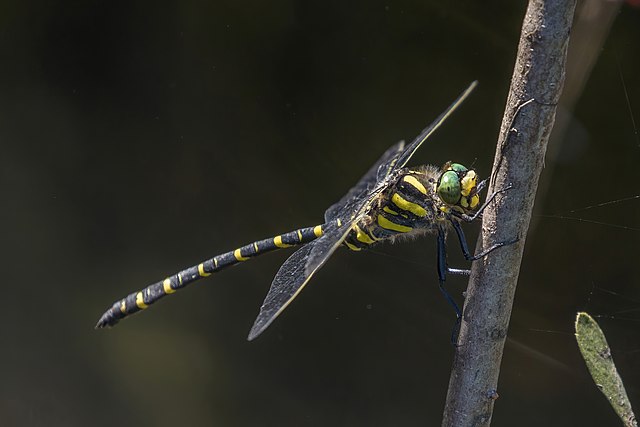
Dragonflies and damselflies are important indicators of environmental health, as they are sensitive to changes in their surroundings and can provide valuable information about the health of wetlands, streams, and other bodies of water.
While generally dragonflies and damselflies are beneficiaries of climate change, there has been a serious decline in some species in Britain, which has raised concerns about the health of their ecosystems and the potential impacts on other species.
One of the main factors contributing to the decline of some dragonfly species in Britain is habitat loss. As human populations continue to grow and urbanise, natural habitats are being lost at an alarming rate. This is particularly true for wetland habitats, which are important breeding grounds for many dragonfly species. Urbanisation, agriculture, and development all contribute to the loss of these habitats, which can have serious consequences for dragonfly populations.
In addition, the use of pesticides and other chemicals in agriculture and other industries can also have negative impacts on dragonflies. These chemicals can contaminate water sources, which can be harmful to dragonflies and other aquatic species. This is exacerbated by other forms of pollution, including plastic and sewage which all to regularly find their way into the streams and rivers.
The species which have faced declines are the emerald damselfly, the black darter, the Common Hawker, the Scarce Blue-tailed Damselfly, the Small Red Damselfly, the Blue-tailed Damselfly, the Variable Damselfly, and the White-faced Darter. Some of these have declined in one or more of the UK nations, but may not have overall, while others have faced a broad decline.
The demise of these dragonfly and damselfy species is of serious concern and we need to do more to protect these precious creatures.
——————————————————————————
At Natural World Fund, we are passionate about stopping the decline in our wildlife.
The declines in our wildlife is shocking and frightening. Without much more support, many of the animals we know and love will continue in their declines towards extinction.
When you help to restore a patch of degraded land through rewilding to forests, meadows, or wetlands, you have a massive impact on the biodiversity at a local level. You give animals a home and food that they otherwise would not have had, and it has a positive snowball effect for the food chain.
We are convinced that this is much better for the UK than growing lots of fast-growing coniferous trees, solely to remove carbon, that don’t actually help our animals to thrive.
This is why we stand for restoring nature in the UK through responsible rewilding. For us, it is the right thing to do. Let’s do what’s right for nature!
Support our work today at https://naturalworldfund.com/ and join in the solution!

